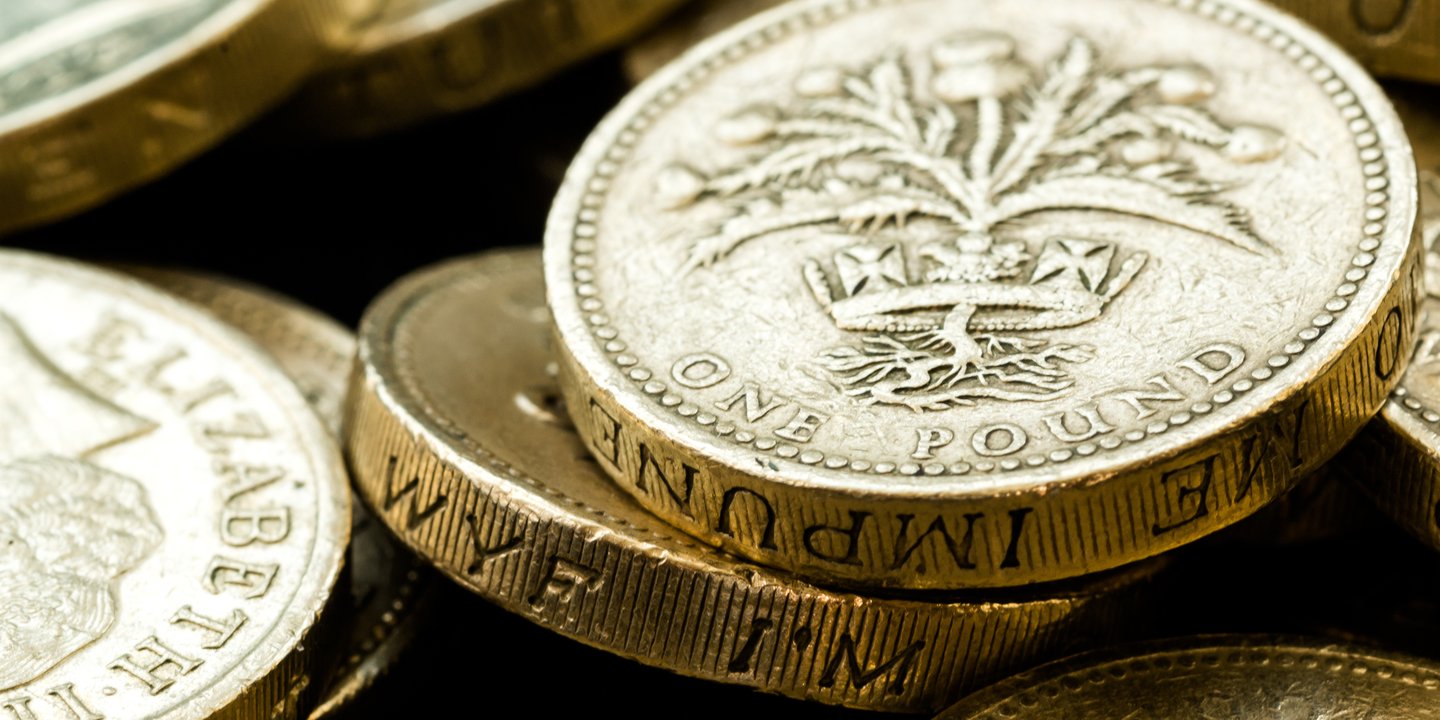
During Thursday’s Brexit vote, the value of the British pound fluctuated wildly – starting at $1.47/£, it climbed as high as $1.50/£ before dropping to $1.35/£. What causes these currency fluctuations?
While the easy answer is “uncertainty” – and there is certainly a lot of uncertainty in Britain right now – the harder question might be “if I were running a business and needed to know what the value of the pound should be, what should I do?” Financial investors do this every day, and thousands were doing so Thursday night – and their actions caused the shifts in value.
The stunning collapse of the British pound, in one chart https://t.co/XaGPqevTMp
— Washington Post (@washingtonpost) June 24, 2016
Before the vote, it was speculated that the appropriate value of the pound if the "Remain" campaign were to win would be $1.55/£, and the appropriate value of the pound if the "Leave" campaign were to win would be $1.30/£. By the end of the vote – one of these would be true, but until then, how should they value the pound?
The best way to do this is to consider each scenario in a weighted average of their probabilities. This will yield what in finance is known as an “expected value.” In this case, if we believe the probability of "Leave" to be p%, then the expected value of the pound will be $1.30 * p% + $1.55 * (1-p%).
Across the world Thursday night, analysts who wanted to know the value of the pound furiously tried to determine what p% would be, and from that, determine what they should do. Let’s say you were such an analyst, and you believed the possibility of a "Leave" victory was 25%. What should you do?
Well, first, you would figure out what you believed the value of the pound should be, so: $1.30(.25) + $1.55(1-.25) = $1.48.
If the current value of the pound is $1.47/£, then you believe that it is undervalued. You should buy pounds, because they are currently cheap. If everyone believes that the probability of a "Leave" victory were 25%, then everyone will do the same, and eventually, the increased demand for the pound will increase the price – to exactly $1.48/£.
You can also take the current price and back out the assumed probability. As the exit polls came out, and a "Remain" victory looked likely, the value of the pound spiked to $1.50/£. What did that mean about p%?
Consider: $1.30(p%) + $1.55(1-p%) = $1.50. The value of p% is 20%. That means, at that point, investors believed there was a 20% chance of a Leave victory (meaning an 80% chance of a "Remain" victory). Overnight, as voting was counted, the value of the pound dropped to $1.35. $1.30(p%) + $1.55(1-p%) = $1.35. That means p% is 80%. The expected probability had flipped, with "Leave" now having an 80% chance of victory.
Thursday night, financial analysts were constantly revising their figures in an attempt to get ahead of their peers. The questions they were asking – what is the value of the pound if "Leave" wins? What is the value of the pound if "Remain" wins? And what is the probability of a "Leave" victory? – were translated into decisions to buy or sell the pound, which corresponded immediately into changes in its value.
These simple equations, along with your own intuition, can be the edge in preparing for uncertainty and knowing the expected future.
Want to know more about finance? HBX CORe will teach you the basics of Business Analytics, Economics, and Financial Accounting using Harvard Business School's renowned case-based methodology!
About the Author
Brian is a member of the HBX Course Delivery Team and is currently working to design a Finance course for the HBX platform. He is a veteran of the United States submarine force and has a background in the insurance industry. He holds an MBA from McGill University in Montreal.









